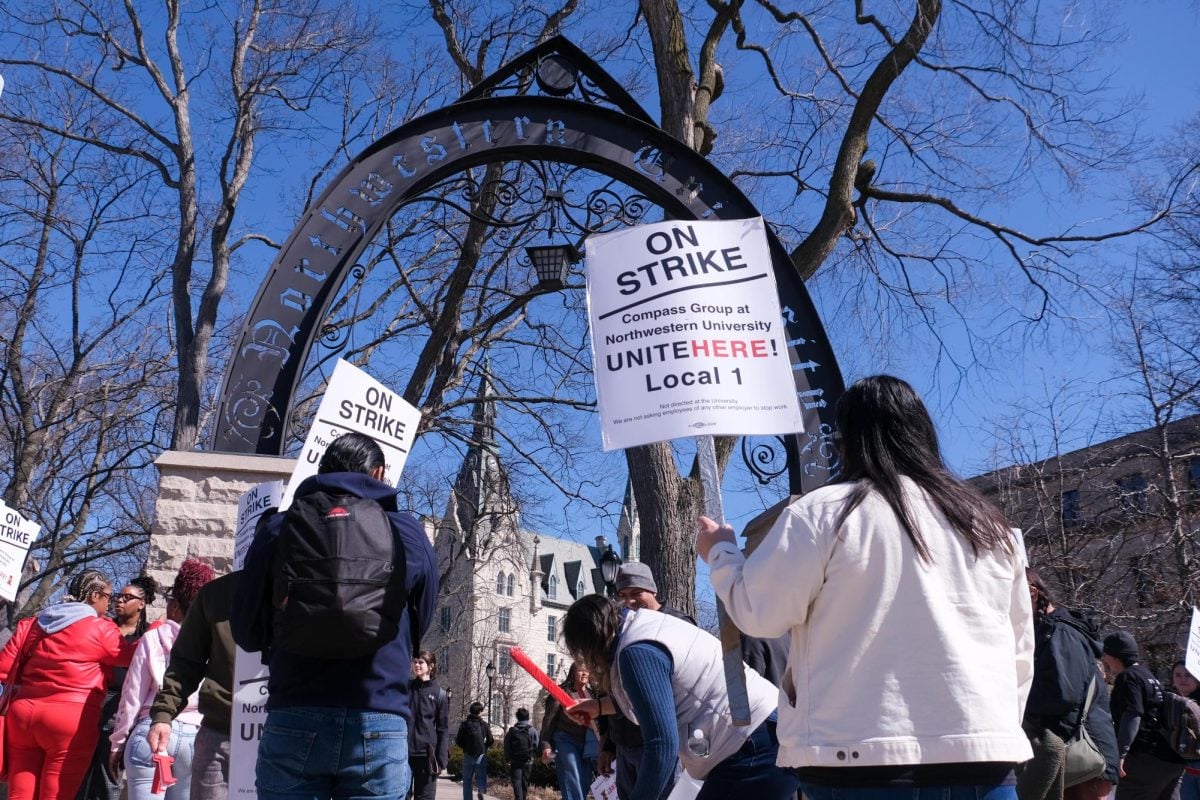The National Institutes of Health terminated at least 10 Northwestern research projects within the last month, many of which related to LGBTQ+ health issues.
The cuts effectively left many professors and postdoctoral students at NU without a full salary and a home base to continue their research pursuits for which they were promised years of funding. The recent purges also reflect President Donald Trump’s longtime pledge to strip funding for what he and his allies have billed as “ideologically driven science.”
A spokesperson for the Department of Health and Human Services told The Daily that the agency is “taking action to terminate research funding that is not aligned with NIH and HHS priorities.”
The first batch of NU grant cuts in mid-March mostly targeted projects looking into HIV and substance usage among sexual minorities. Many of them were associated with NU’s Institute for Sexual and Gender Minority Health and Wellbeing, founded in 2015 as the first university institute in the country focused on research to improve the health of sexual and gender minorities.
The University did not respond to requests for comment about the cuts by the time of publication.
Feinberg Prof. Michelle Birkett ran one of the three cut programs, known as the SILOS project, until a few weeks ago. In August 2024, the project received a five-year $3.8 million grant from the NIH. It was recently in its early stages of gathering data across five cities in the U.S. to understand social contexts that drive HIV and substance use among marginalized communities.
Like many others whose funding was cut, Birkett first received a notification from the University. Then the funding for her team of about 15 students and faculty investigators disappeared.
“My most immediate concern is to stabilize my team, making sure that each of my staff is fully funded and able to continue employment,” Birkett wrote in an email to The Daily. “So I’m juggling folks across my other studies, and reaching out across campus to find projects and labs that might be able to take on folks.”
For Birkett, the SILOS project was her one-time “dream project.” Most of her research at NU focused primarily on social factors that affect the health of sexual and gender minority youth. But in the coming months, she said she needs some time “to figure out how to best pivot this research in a very difficult funding landscape.”
She said these grant cuts will likely have lasting effects on her and other colleagues in her specific field.
“The entire field of sexual and gender minority health has been decimated through hundreds of terminations. … I barely know any queer health researchers who have been untouched,” Birkett said.
Emily Esposito was one of Birkett’s mentees and part of a postdoctoral fellowship with the ISGMH that was also cut. After arriving at NU last July, the grant was meant to last Esposito two years, allowing her to pursue research in HIV and sexual health among racial minorities. She also helped out with the SILOS Project.
The fellowship not only funded her research, she said, but also her entire salary for those years.
“I was very upset about it. I mean, not only is it my livelihood, but I’m now trying to make sense of how secure my job is, how I’m going to go forward, if I still have health insurance still, all the things that are tied into essentially losing your job,” Esposito said.
The latest wave of NIH grant cuts at NU appeared to have occurred in the afternoon and evening of March 21, according to Feinberg Prof. Gregory Phillips. From talking with other faculty members, he estimated there were about nine research grants at NU gutted that day.
Phillips said he had two R01 grants and supplements — some of the NIH’s most commonly used grant programs — each worth around $3 million, canceled. The projects focused on topics ranging from improving measurements of sexual orientation to examining variations in sexual characteristics.
“We were trying to improve the health and well-being of LGBT communities, and now that’s all set back who knows how far, because all this work is getting canceled, and likely new grants on these topics are going to get funded,” Phillips said.
The combined cuts have slashed almost half of Phillips’ salary. While many others have filed appeals to their grant cuts, Phillips said he hesitates to think if it will make any difference.
To Phillips, the cuts have been “clearly discrimination” and pose dangers for the future of health care in the LGBTQ+ community.
“We’ve all lost at least one grant, and it’s just hard to know what’s next for any of our careers, especially those of us who build our careers around LGBTQ health,” Phillips said.
Email: jerrywu2027@u.northwestern.edu
X: @Jerrwu
Related Stories:
— New NIH policy cuts indirect costs to 15% rate, concerning NU staff and students
— Northwestern sees jump in research funding, proposals over past decade
— Schill email provides updates and clarity following questions of federal funding freeze







